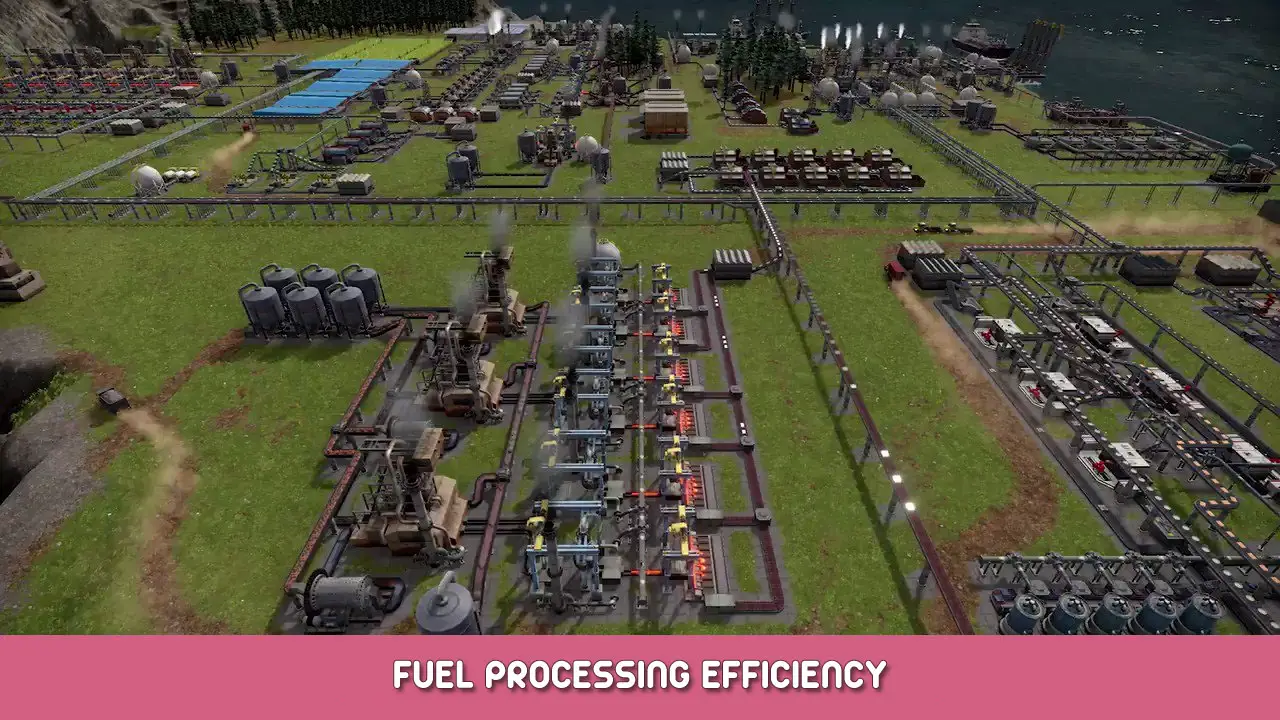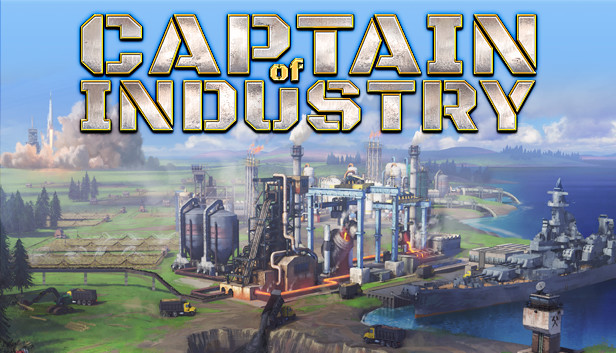This guide will compare the different fuel types derived from crude oil and their energy efficiency when used to produce steam, for electricity generation.
부인 성명
This guide is not a be-all-end-all cookbook that will show you the perfect 100% efficient way to produce fuel.
It is just a basic summary of the different oil byproducts, how much energy they can generate, and if the transformation processes are a net gain or loss of energy.
General fuel data
The bread and butter of this guide!
This will allow you to compare fuel stats at a glance.
I’ve included steam-hi so you can see how much energy 1 unit of steam produces.
Unless stated otherwise, all of the data in this guide is per 60 초 (instead of per production cycle). All the energy has been calculated using stats from the SECOND turbine and generator (the more efficient ones)
Click on the image to enlarge

- Fuel type : the resource used to power a boiler for 60 초
- Fuel qty : the amount of that resource used to power the boiler
- Steam Hi : the amount of steam created per 60 초
- Mech : Mechanical power produced by that amount of steam, in MW, in a high pressure turbine 2
- 전기 : the amount of electricity, in MW, you can produce with the amount of mechanical power, using a Generator 2
- Electricity/fuel : the amount of electricity divided by the amount of fuel. A.K.A. how much electricity 1 unit of fuel of this type provides
**BONUS** I’ve added pollution data, since I already had all the fuel table ready. This is important because some fuel types seem very attractive energy-wise, but could make your citizens very sick if used at a large scale. This pollution data, 하지만, only includes the pollution created by using the fuel. The pollution created by producing the fuel (mainly sour water) won’t be included in this guide.
- Exhaust type : what gas is exhausted when this fuel is burned in the boiler
- Exhaust qty : how much gas is produced
- Pollution : How much pollution is emitted when the gas is directly vented with a smokestack
- Pollution/fuel : Pollution divided by the amount of fuel. How much pollution 1 unit of this fuel emits when used in the boiler.
What can we learn from that?
You can see that coal provides the most amount of electricity per unit. 하지만, it’s also the most polluting, along with diesel.
Fuel gas may provide less energy per unit than most other fuels, but it also produces more than 2 times less pollution, thanks to its exhaust being carbon dioxide instead of plain exhaust. Seems like a good candidate for long term energy production.
Distillation
Is it better to have less of the more advanced stuff or will you have more with less when you try to do less with more advancement.
Here I will only be talking about advanced distillation. The first process you unlock, the one that transforms crude directly into diesel with the basic distiller, is so inefficient that I won’t even bother including it. It is bad, and you should move away from that as soon as you can.
The distillation tables include the opportunity cost of steam in the recipes, compared to using this steam in a high pressure turbine 2. Opportunity cost means “how much energy am I “지는” by using this steam in the distillation instead of using it in the turbine”.
All the energy data is in MW.
단계 1

Not much to say here. The net energy is very high, because you can’t directly use crude oil in your boilers. 그래서, distillating crude oil makes around 2.26MW of energy available for use per 60 초.
단계 2

여기, we can see a tiny energy loss (-0.03 MW). It is however negligible.
단계 3

이번에는, we have a good net gain. 이와 같이, it’s always worth it to process your fuel to stage 3, even if you’re going to directly burn the products. Even better, we have some fuel gas as final product. So in addition to providing more energy, powering a boiler with oil distilled to stage 3 will pollute less than producing the same amount of energy with products of earlier distillation stages.
Cracking
After distillating crude, you can crack some fuel types to convert them into different fuels. 이것, 하지만, generally has the caveat of losing energy in the process.
Heavy oil cracking

우리가 볼 수 있듯이, processing heavy oil into diesel results in a net energy gain. Take note of that, as it is a reoccurring theme throughout the cracking recipes.
Cracking to naphta results in no energy loss. 하지만, burning the heavy oil and hydrogen used in this process would result in 15 pollution, while burning the naphta and fuel gas would result in 15.06 pollution.
It’s not bad, but you’ll have to evaluate why you’d want to set up this process.
Cracking Naphta


Cracking Diesel and Fuel Gas


보시다시피, all those recipes result in an energy loss if you’re not cracking into diesel.
그래서, unless you need more fuel for your ships and trucks, I would recommend not converting those fuels and using them as-is in the boilers.
Why using diesel for power is a bad idea
With all that data, you could think that diesel is a valid power generation option. 결국, it’s easy to produce, and generates a lot of energy!
Let me show you a couple of stats about the building generating that power.
More diesel, more problems.

For this table, I’ve used the stats of turbine 1 and power generator 1, which are less efficient than the second ones you can research. This is for the sake of demonstrating how diesel generators are bad, and they should feel bad.
What we can learn from this table is that generating electricity from diesel is abysmally inefficient in terms of maintenance efficiency. Diesel may be a good fuel, but the building using them to produce electricity are so high maintenance, that anything you gain from using diesel, you will lose twofold from maintenance costs.
The basic turbine setup generates 0.60 MW and needs 4 유지. To generate the same amount of power, you would need to build 3.33 diesel generators. Let’s round that to 3, and that’s still 18 maintenance needed per 60 초. Not what I’d call a sound investment.
결론
While I’m not going to calculate the precise most efficient refinery setup to get the last kw out of your oil, we can take out a few guidelines from the data above :
- Distillating to tier 3 and simply burning what you’ve got from the process in your boilers is a good headache-free solution that is reasonably efficient and not too dirty
- Diesel is only good for transports. Don’t go converting all your chemicals into diesel, because transforming diesel into electricity is a big no-no due to maintenance costs. Technologies researched later in the game are better than earlier ones ! Who woulda thunk it ?
- Fuel gas, if you can get it, is so much cleaner than other fuels. In case of pollution overload, you could take the hit to net energy and convert all your fuels to gas.
- The other types of cracking are really a case-by-case issue. You’ll have to assess the situation and see if you need to transform fuels, especially for other uses than power generation
이것이 오늘 우리가 공유하는 모든 것입니다. 산업의 대장 가이드. 이 가이드는 원래 작성자가 작성하고 작성했습니다. Spooky SkeleTOM. 이 가이드를 업데이트하지 못한 경우, 다음을 수행하여 최신 업데이트를 찾을 수 있습니다. 링크.

